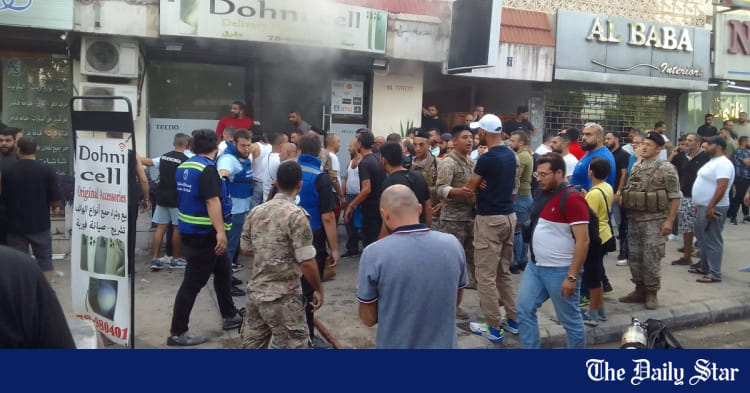Saif
Senior Member
- Joined
- Jan 24, 2024
- Messages
- 17,120
- Likes
- 8,163
- Nation

- Residence

- Axis Group


Israel strikes on Lebanon kill 7
Lebanon’s health ministry said on Friday Israeli strikes killed seven people including a child in different parts of the south, with Hezbollah saying three of its fighters were...
 www.newagebd.net
www.newagebd.net
Israel strikes on Lebanon kill 7
Agence France-Presse . Beirut 23 August, 2024, 23:02
Lebanon’s health ministry said on Friday Israeli strikes killed seven people including a child in different parts of the south, with Hezbollah saying three of its fighters were among the dead.
Hezbollah, which is backed by Iran, has exchanged regular fire with Israel in support of its ally Hamas since the Palestinian militant group’s October 7 attack on Israel sparked the Gaza war.
The health ministry said an ‘Israeli enemy drone strike’ killed two people including a ‘seven-year-old’ in Aita al-Shaab, and two other ‘Israeli’ strikes killed five people in three other locations in the south.
Lebanon’s state-run National News Agency said a ‘hostile drone’ targeted a house in Aita al-Shaab with ‘two guided missiles’.
The health ministry said Israeli strikes included a raid ‘on the village of Tayr Harfa that killed three people’, with Hezbollah later mourning three fighters killed by Israeli fire, including a man from that same village.
A source close to the group said that the three fighters were killed in the Tayr Harfa strike.
Israel’s military said its aircraft ‘eliminated’ members of ‘a terrorist cell that was planning to fire projectiles from the area of Tayr Harfa’.
On Friday morning, Hezbollah said it had targeted the northern Israel base of Meron ‘in response to the enemy’s attacks on southern villages and homes’.
The threat of full-blown war grew after Iran and Hezbollah vowed to avenge the killings last month, blamed on Israel, of Hamas political leader Ismail Haniyeh in Tehran and top Hezbollah commander Fuad Shukr in south Beirut.
Cross-border violence since the Gaza war started has killed 600 people in Lebanon, mostly Hezbollah fighters but including at least 131 civilians, according to an AFP tally.
The Israeli authorities have announced the deaths of at least 23 soldiers and 26 civilians since the escalation began.
Agence France-Presse . Beirut 23 August, 2024, 23:02
Lebanon’s health ministry said on Friday Israeli strikes killed seven people including a child in different parts of the south, with Hezbollah saying three of its fighters were among the dead.
Hezbollah, which is backed by Iran, has exchanged regular fire with Israel in support of its ally Hamas since the Palestinian militant group’s October 7 attack on Israel sparked the Gaza war.
The health ministry said an ‘Israeli enemy drone strike’ killed two people including a ‘seven-year-old’ in Aita al-Shaab, and two other ‘Israeli’ strikes killed five people in three other locations in the south.
Lebanon’s state-run National News Agency said a ‘hostile drone’ targeted a house in Aita al-Shaab with ‘two guided missiles’.
The health ministry said Israeli strikes included a raid ‘on the village of Tayr Harfa that killed three people’, with Hezbollah later mourning three fighters killed by Israeli fire, including a man from that same village.
A source close to the group said that the three fighters were killed in the Tayr Harfa strike.
Israel’s military said its aircraft ‘eliminated’ members of ‘a terrorist cell that was planning to fire projectiles from the area of Tayr Harfa’.
On Friday morning, Hezbollah said it had targeted the northern Israel base of Meron ‘in response to the enemy’s attacks on southern villages and homes’.
The threat of full-blown war grew after Iran and Hezbollah vowed to avenge the killings last month, blamed on Israel, of Hamas political leader Ismail Haniyeh in Tehran and top Hezbollah commander Fuad Shukr in south Beirut.
Cross-border violence since the Gaza war started has killed 600 people in Lebanon, mostly Hezbollah fighters but including at least 131 civilians, according to an AFP tally.
The Israeli authorities have announced the deaths of at least 23 soldiers and 26 civilians since the escalation began.


































 War Archive
War Archive





